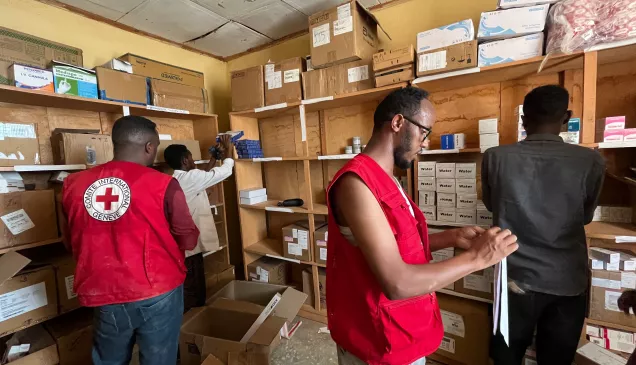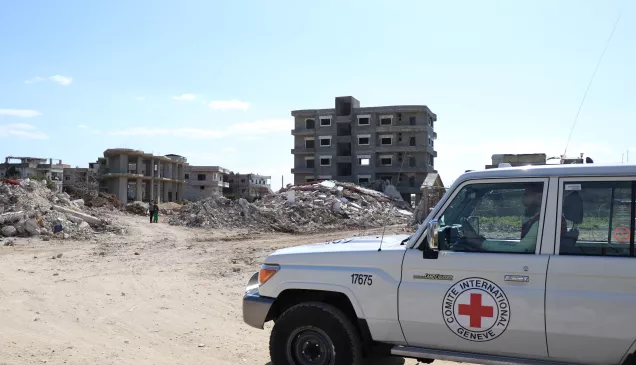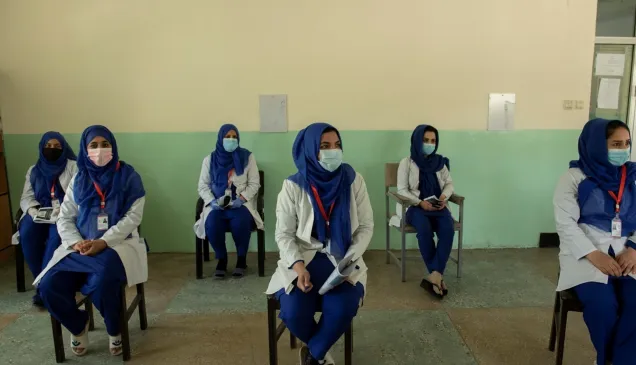Mali: Azahara, nursing in the face of adversity
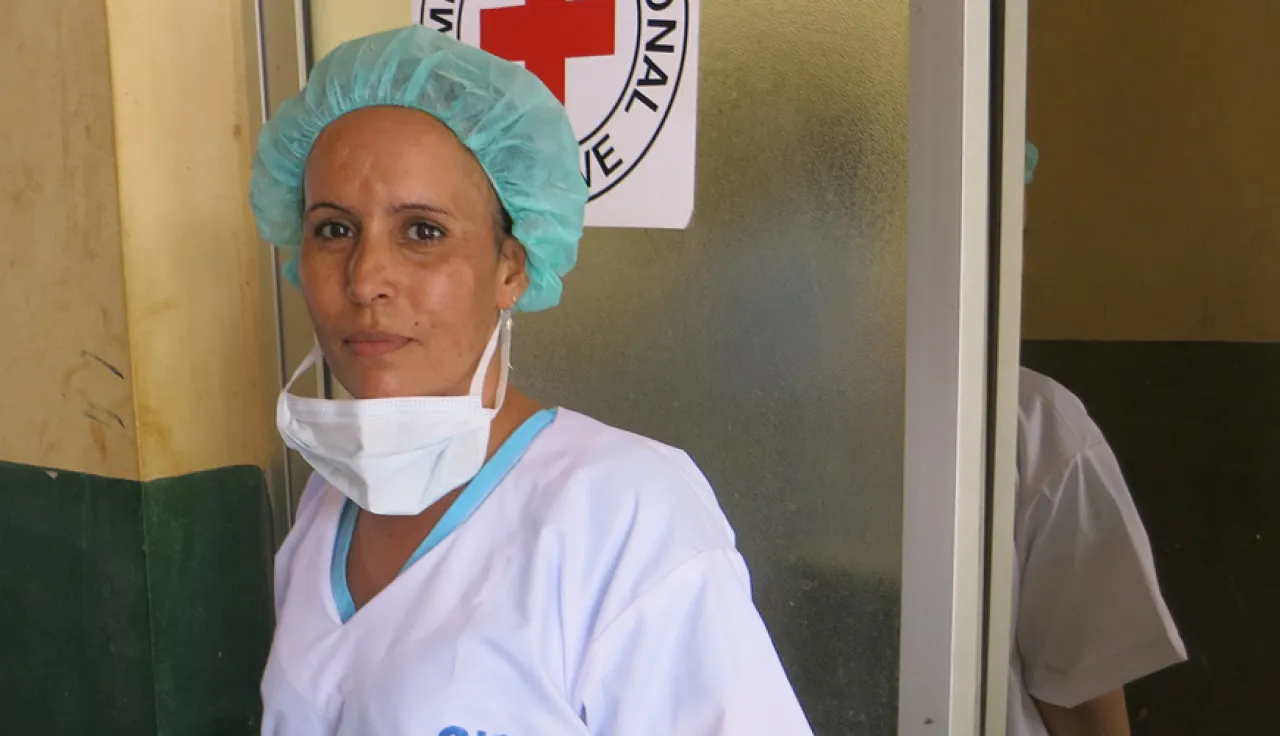
Fadimata Zahara Cissé, affectionately known as Azahara, has been an ICRC nurse in Gao, northern Mali, for over five years. She is a key member of the team delivering surgical care at Gao hospital.
After several years with other humanitarian organizations, 30-year-old Azahara, originally from Mali's Timbuktu region, joined the ICRC medical team at Gao hospital in 2010. In recent years, people living in this region have endured much hardship as a result of the armed conflict. And Gao hospital has often been on the front line when it comes to providing emergency care. "In 2012, there were times when we were receiving dozens and dozens of wounded patients at once, most with gunshot wounds and some whose limbs had been cut off," recalled Azahara, her face betraying no emotion. "But thanks to the technical capacity of the hospital, which was entirely renovated by the ICRC, we were able to treat even the cases that seemed hopeless," she continued, more positively.
"At times the hospital was pushed to the limit. We had to work night and day to look after patients requiring urgent care. That's what happened in May 2014 in Kidal and during the clashes between armed groups in Tabankort, Menaka and Anefis in 2015. Wounded people were pouring in from all sides, all requiring our undivided attention."
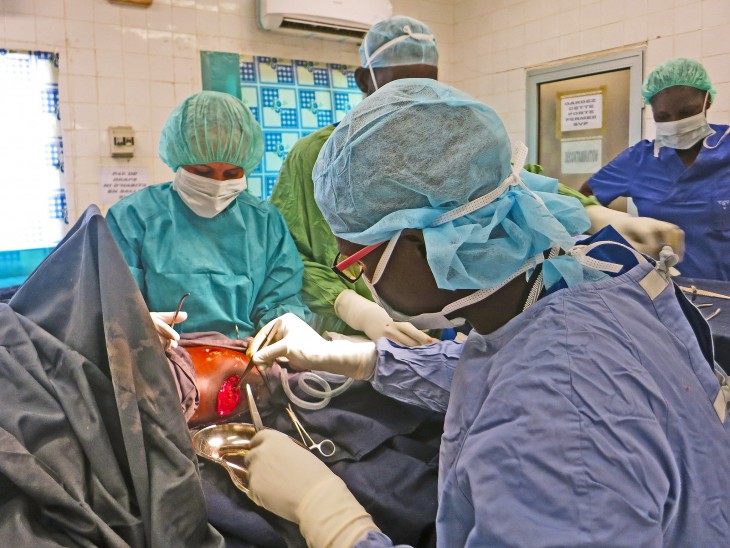
Gao hospital, Mali. Azahara assists during an operation on a casualty of the fighting that has wracked northern Mali since the beginning of 2012. CC BY-NC-ND / ICRC
Azahara is still haunted by the memory of those who came to the hospital in 2012 having had limbs cut off by armed men, who accused them of breaking the law. "The operating theatre dealt with the most seriously injured cases, so we were on the front line, directly in contact with patients being brought in who had just had an arm or a leg cut off." But Azahara's strength of character and courage enable her to stay calm and professional in the face of adversity and a very harsh reality.

Gao hospital, Mali. Azahara adjusts the dressing of a patient recovering from an operation. CC BY-NC-ND / ICRC
Azahara is not immune to the effects of the violence, however. She has been through some very difficult experiences, and has even feared for her life – like the day that protestors forced their way into the hospital looking for patients who supposedly belonged to the other side. "We heard shouts and screams. We were terrified for our patients and staff alike. Fortunately, the protestors changed their minds and left; we got lucky," she recalled. "The ICRC treats everyone. What matters is the seriousness of their condition, not their affiliation to one group or another. Such an approach might be difficult for others to understand, but it's what underpins our humanitarian work."
Although she has learnt to overcome some painful experiences with a great deal of courage, Azahara hasn't got over the attack of 30 March 2015, in which her colleague Hamadoun was killed. He was attacked on the road as he drove an ICRC truck. "I still get goosebumps whenever I think about it, as if it was only yesterday," she says, overcome with emotion. "I can't believe it, I still can't believe it."

Gao hospital, Mali. Azahara explains to a family how the hospital is caring for their injured relative and reassures them. CC BY-NC-ND / ICRC
Azahara's family have repeatedly asked her to stop working for the ICRC, whose work is mainly carried out in what can be dangerous conflict zones. But she won't be put off. "I'm driven on by the smiles of the many survivors of the conflict. We treat them in surgery, sometimes in a terrible state, and then we come across them a few weeks or months later, in the hospital or elsewhere, in good health and smiling," she explained. "That smile – sincere, grateful – that's what gives me the courage and strength to carry on, despite the sometimes very difficult security situation."

